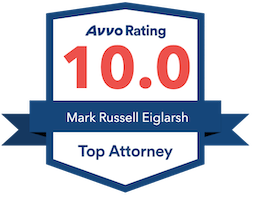Extortion
Extortion in Miami typically involves a person who to obtain financial gain and/or force someone to do something or not do something, maliciously threatens to either accuse another person of a crime; injure them physically, their reputation, and/or property; expose a secret that affects another; and/or exposes another person to disgrace. To prove extortion, prosecutors must prove that the offender committed the offense with “actual malice.”
Actual malice is defined as “ill will, hatred, spite, an evil intent.” On the other hand, legal malice demands only that an act is committed knowingly and without any valid justification.
Even a threat to the mental health of an individual may constitute a threat of injury under the concept of extortion. The courts have held that under Florida law the threatened injury does not need to be a threat involving physical injury.
Federal laws on extortion also apply to threats against or made by federal employees. Furthermore, it can be prosecuted as racketeering under the Racketeer Influenced and Corrupt Organizations Act (RICO) when extortion happens on a broader scale or is performed by an organization.
The number of cyber extortion crimes has also seen considerable growth during the past few years. In these cases, a person (who typically does not have any kind of relationship with the victim) electronically steals a victim’s secret, or by using hacking methods to get into the victim’s computer.
Extortion is subsequently committed by threatening to reveal the secret afterward unless the victim pays money or takes a certain action. An example of this is an attacker who threatens to take down the website of a corporation or steals data from the corporation unless they are paid a monetary ransom. Cyberstalking and cyberharassment can also be considered other crimes that relate to electronic extortion.
Another type of cyber extortion involves using malicious software to encrypt data on a computer system or network of an organization. The software or computer is then rendered unusable unless the victim pays money. This type of software cyberextortion is commonly referred to as “ransomware”.
Threats are communicated digitally in schemes involving cyberextortion, often via online messages, or through text messages and social media.
It’s worth noting, however, that extortion threats-regardless of whether or not they are cyberextortion extortion can be implied, and a prosecutor doesn’t need to prove that the defendant actually carried out the threat or even could do so. As an example, making a threat to expose someone’s spouse of being involved in an affair unless they pay you a certain amount of money, that threat could be considered extortion, even if there is no way of contacting the spouse. There is already a threat of monetary gain from harming someone.
An extortion offense in Florida is a second-degree felony and may be punishable by up to 15 years in prison, probation, and large fines of up to $10,000. Besides the pre-trial defenses and court defenses that can be presented in any criminal case in Florida, there are particular defenses to the extortion crime.
Since an extortion charge is classified as theft, larceny or robbery that does not place the victim in immediate physical danger, and because several cases turn out to be “he said / she said”, there is a multitude of defenses available to fight the charge in court.
Idle threats are an extortion crime defense if it can be proved that the threat was never intended to reach the intended target. An idle threat example is one where someone was told that a third party would be exposed if they didn’t pay off a certain debt without the intention of the threat being shared with anyone else. Because the threat was not intended to be passed on, the crime of extortion was not necessarily committed.
The general information provided above about extortion in Fort Lauderdale is meant for educational purposes only and is not a substitute for speaking directly with an attorney about the facts and circumstances of your case. Please call 954.500.0003 in Broward or 305.674.0003 in Miami to schedule a consultation with the Law Offices of Mark Eiglarsh.








